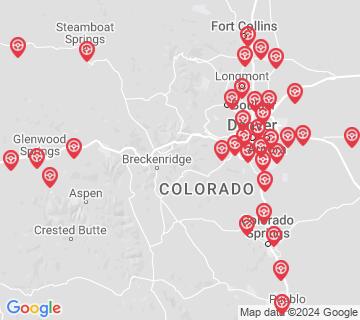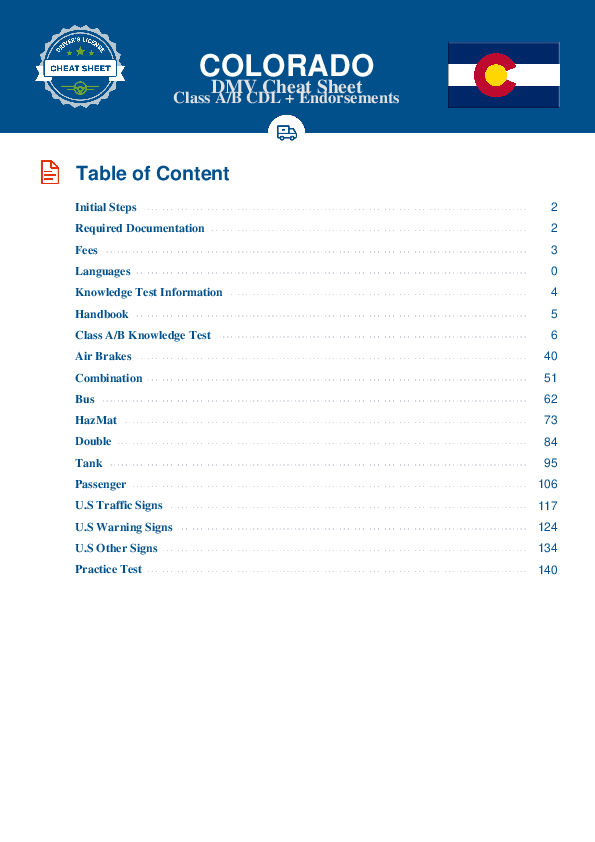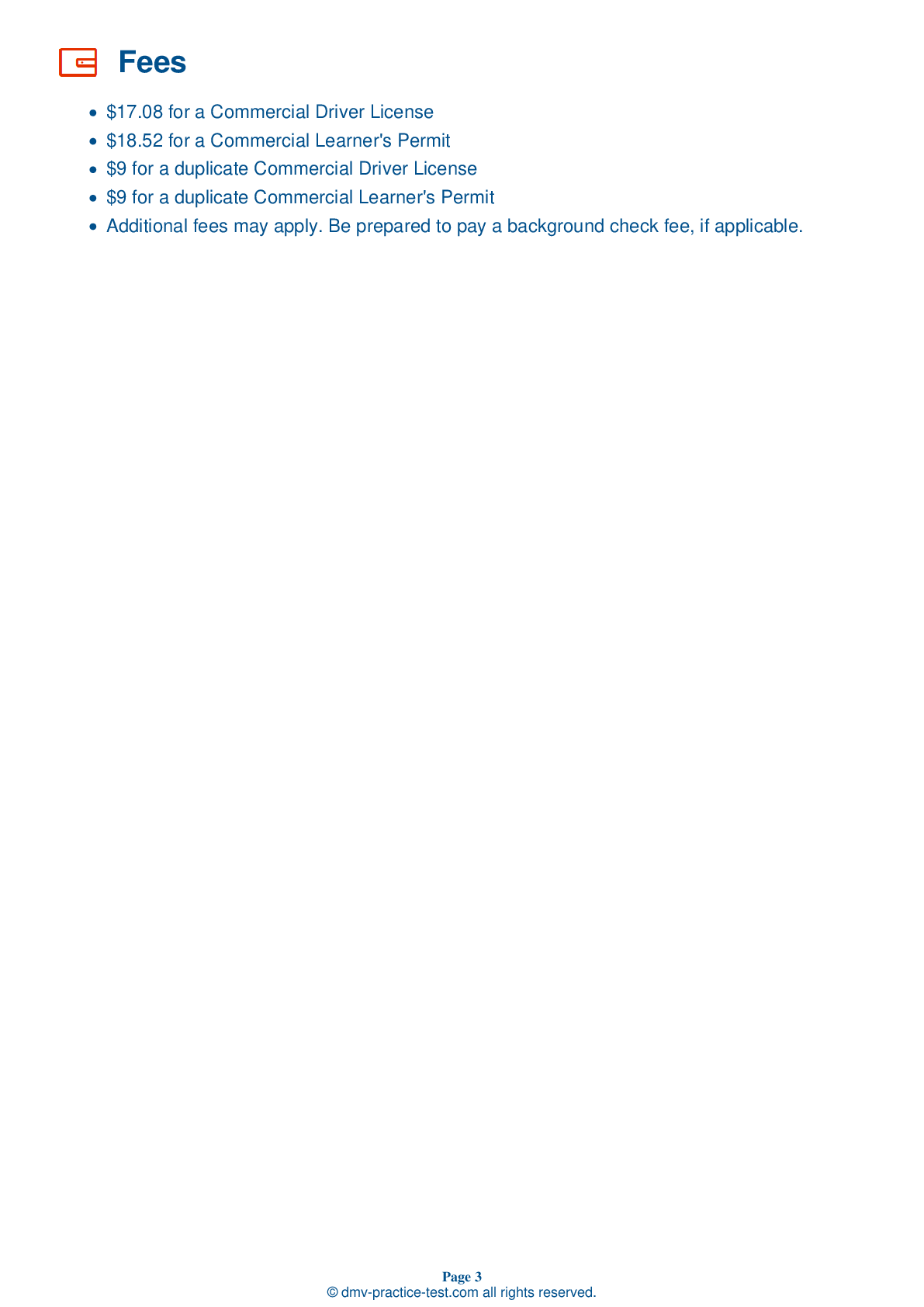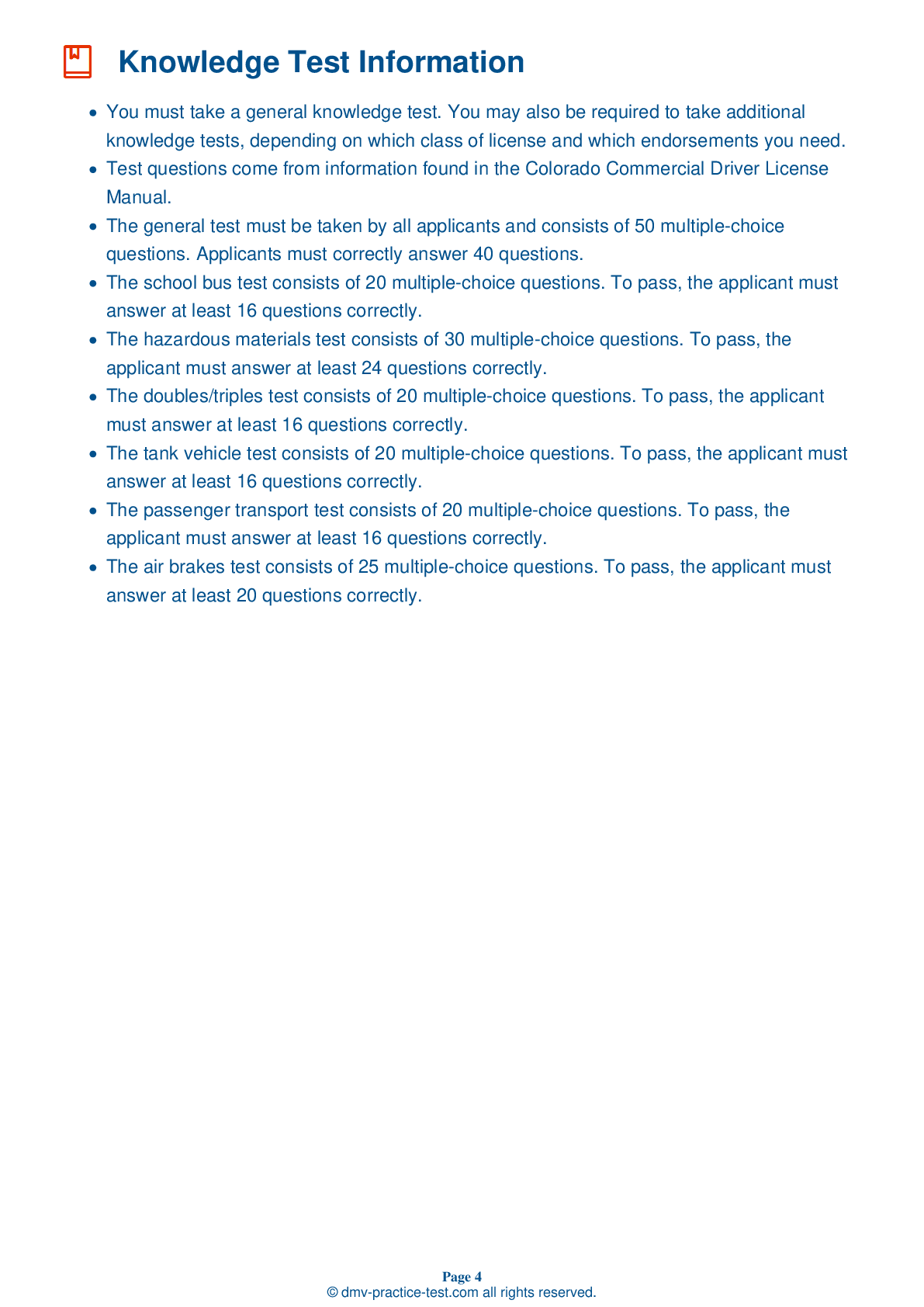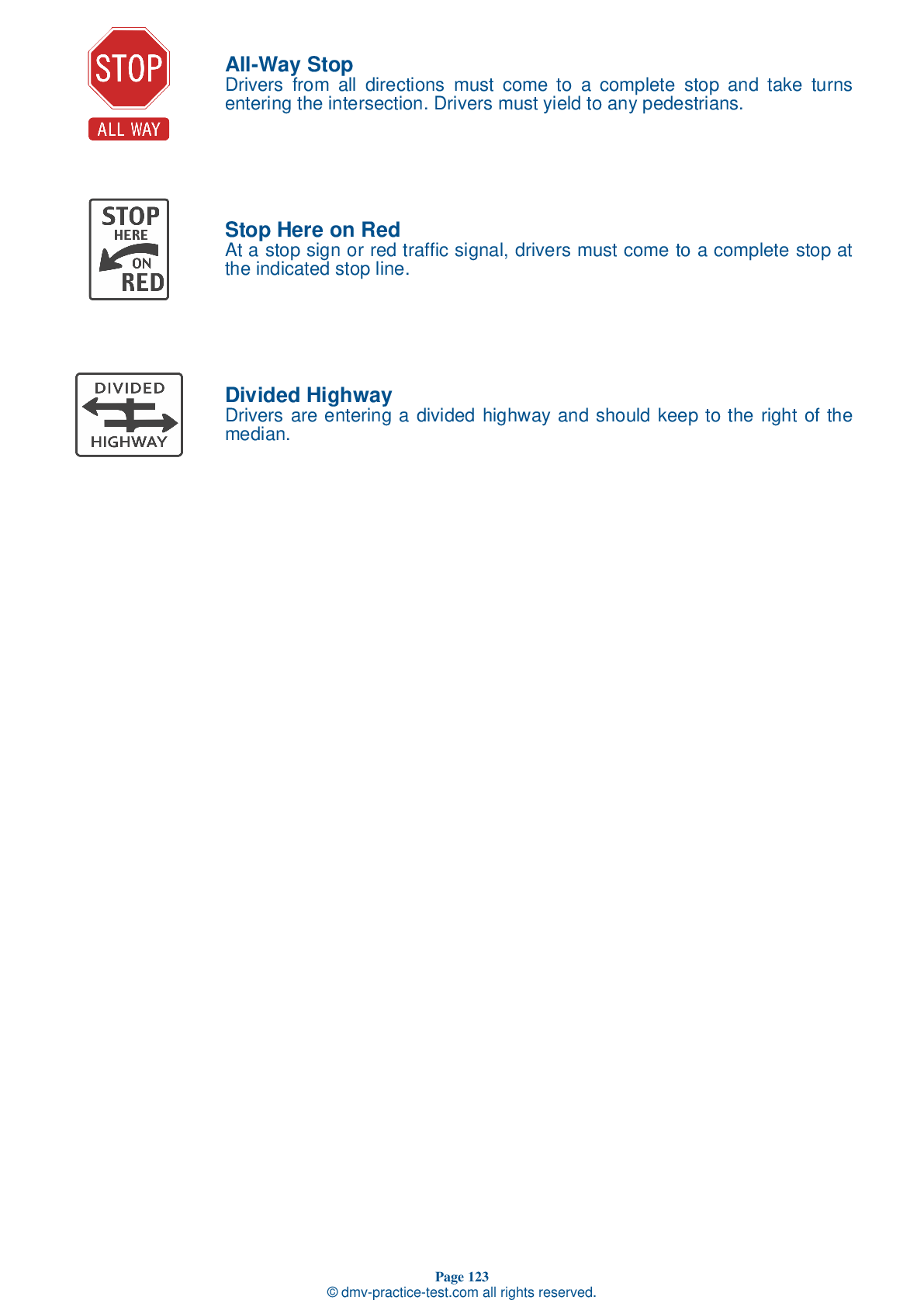Knowledge Test Class B #2
Class B Driving Test | Colorado 2026 #2 Page 6 of 7
Train for FREE online with our Colorado class B license test. The official exam test consists of several obligatory parts, with all of them checking your knowledge of different blocks of road rules. If you need to obtain a CO CDL class B permit in 2026, practice as much as possible. Free sample tests published on our website will help you check and improve your knowledge and boost your grades. Please bear in mind that CDL class B requirements may vary from state to state.
50
40
20
36 . Rust around wheel nuts may mean:
The nuts are too tight.
Rust around wheel nuts may mean that they are loose. Check the tightness of the nuts if you see any rust in the area.
37 . While driving a vehicle, if an unusual noise or feeling occurs, the driver should:
Drive on the shoulder.
If you see, hear, smell, or feel anything that could indicate trouble while you are driving, you should stop and inspect the source of the unusual occurrence.
38 . Your vehicle's final position should be:
Within two feet of the final position described by the examiner.
You should finish each exercise with your vehicle in the exact position described by the examiner. You can be penalized for failing to complete an exercise exactly in the manner described by the examiner, potentially resulting in failure of the basic control skills test.
39 . When steering to avoid a crash, you should:
Speed up as you get nearer to the hazard.
When turning quickly to avoid colliding with a hazard in the roadway, you should always keep both hands on the steering wheel. You must have a firm grip on the wheel to be able to turn quickly.
40 . Which of the following is acceptable if found during a pre-trip inspection?
Cracks in the tires
When inspecting your tires, verify that there is tread depth of at least 4/32 of an inch in every major groove on the front tires and tread depth of at least 2/32 of an inch in grooves on the other tires. Be sure that your tires are not too worn, are not cracked, have proper air pressure, and are all equally sized.
41 . Emergency equipment, such as a fire extinguisher, is:
Only required when transporting passengers.
All commercial motor vehicles are required to be equipped with the proper emergency equipment. This may include spare electrical fuses; three red reflective triangles, six fuses, or three liquid burning flares; and at least one properly charged and rated fire extinguisher.
42 . When driving:
You should drive as fast as possible.
Operators driving too fast is a major cause of fatal crashes. You must continually adjust your speed to a rate that is safe for road and traffic conditions.
Search the best driving school in your neighbourhood
2026 Colorado | Frequently Asked Questions
A CDL Class B license in Colorado allows the holder to operate single vehicles with a gross vehicle weight rating (GVWR) of 26,001 pounds or more, or towing vehicles not exceeding 10,000 pounds GVWR. This includes buses, farm labor vehicles, and any vehicle designed to transport 16 or more passengers including the driver.
A Class B CDL license in Colorado allows the holder to operate single vehicles with a gross vehicle weight rating of 26,001 pounds or more, and towed vehicles not exceeding 10,000 pounds. It covers vehicles like city buses, delivery trucks, dump trucks with small trailers, and large straight trucks.
To acquire a Class B CDL license in Colorado, you must be at least 18 years old (21 for interstate driving), possess a valid Colorado driver's license, pass a vision test, and successfully complete a written knowledge test. Additionally, you must pass a skills test which includes a pre-trip vehicle inspection, basic vehicle control, and on-road driving.
In Colorado, you must be at least 18 years old to qualify for a Class B Commercial Driver's License (CDL) for intrastate driving (within Colorado only). However, you must be at least 21 years old to drive a commercial vehicle across state lines, carry hazardous materials, or transport passengers.
Specific endorsements aren't necessary for a Class B CDL license but they can broaden your driving capabilities. Endorsements include: H for hazardous materials, N for tank vehicles, P for passenger vehicles, S for school buses, and T for double/triple trailers. Each endorsement requires passing a knowledge test and some require a skills test.
The Class B CDL skills assessment in Colorado includes three parts: a pre-trip vehicle inspection, a basic vehicle control test, and an on-road driving test. You must demonstrate knowledge of your vehicle and its controls, show ability to manage its operation under various traffic conditions, and ensure it's safe for the road.
Yes, Class B CDL license holders in Colorado are restricted to operating vehicles with a GVWR of 26,001 or more pounds, or towing vehicles not more than 10,000 pounds. They can also operate buses with 24 passengers or more, including the driver. However, they cannot operate Class A vehicles unless they have the appropriate endorsements.
In Colorado, the written CDL test is offered only in English. Federal regulations mandate that all CDL applicants demonstrate proficiency in English. They must be able to read, write, speak, and understand the language to converse with the general public, understand highway traffic signs and signals, respond to official inquiries, and make entries on reports and records.
Yes, you can request accommodations for the Class B CDL written exam in Colorado if you have a disability. You must provide documentation of your disability and specify the type of accommodation needed. The DMV is committed to providing equal access to its services and will make reasonable accommodations in accordance with the Americans with Disabilities Act.
Yes, you can retake the Class B CDL written test in Colorado. If you fail, you must wait one day before retaking it. If you fail three times, you must wait 30 days before your next attempt. Keep in mind each retest has an associated fee and make sure to study the manual thoroughly before retaking the test.
